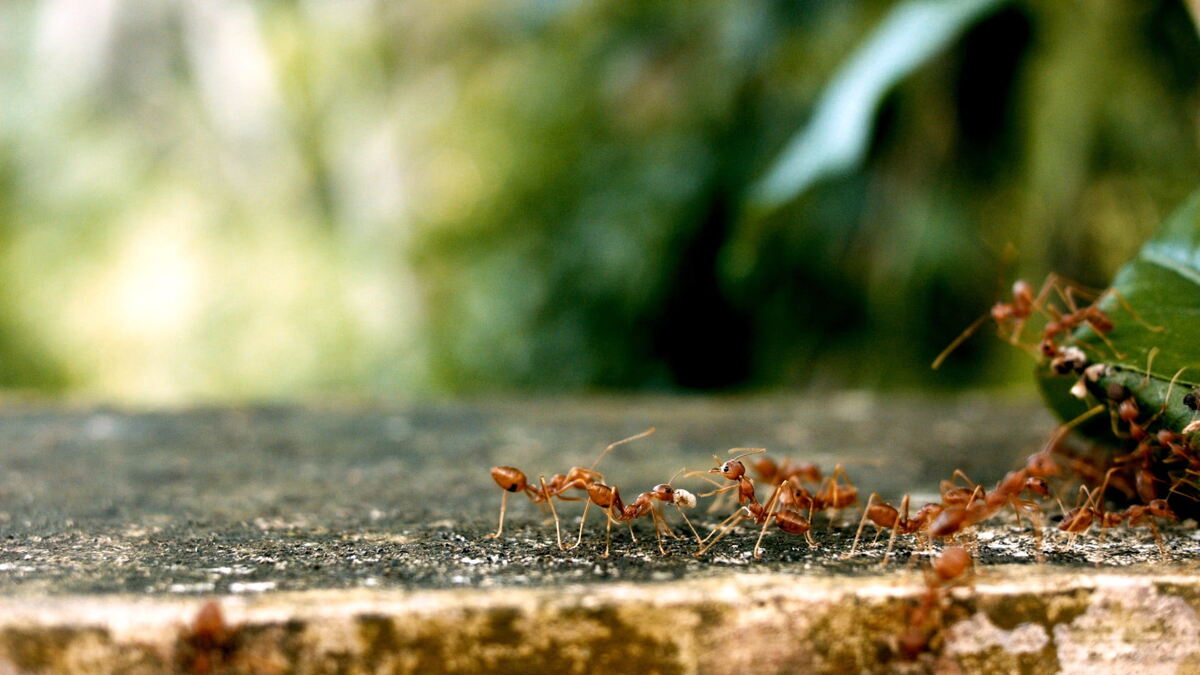
We spend all winter dreaming about summer and the balmy days and nights gathered in the yard, around the grill, or chilling by the pool. However, our mild winters make it easy for pests to thrive and spoil our summer get-togethers. Here are the six worst lawn pests that bug Virginia Beach homeowners and how to control them.
1. Biting Flies
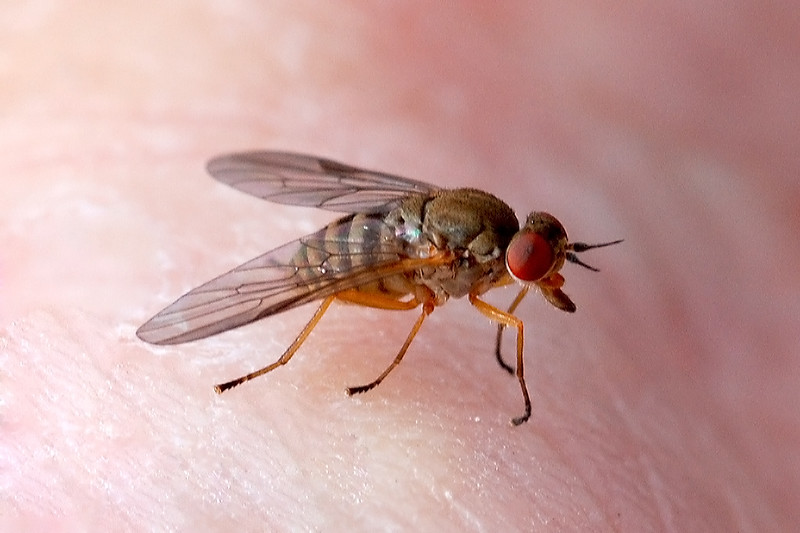
Photo Credit: Jean and Fred / Flickr / CC BY 2.0
From no-see-ums to deer flies and black flies, these winged menaces can ruin a good time when they enter the scene. Deer flies are a particular menace that arrive en masse in May with their blood-thirsty little mouths.
How to Get Rid of Biting Flies
- Wear light-colored clothing and use an effective fly repellent to keep them at bay.
- Some folks report success using CO2 mosquito traps outdoors.
- Don’t forget the good old fly swatter.
- Tight screens are also a good preventive measure.
- As with many other flying pests, minimizing any wet, swampy areas in your yard will discourage these nasty biters from coming onto the scene.
2. Chiggers
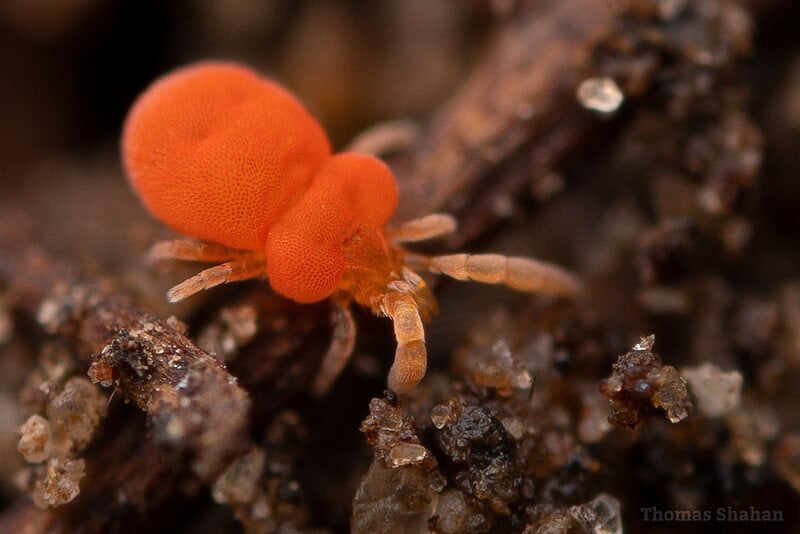
If you’ve got chiggers in your yard (also known as berry bugs), you’ll know it, and you will be desperate to do something about it, ASAP. These little red mites have a bite that leaves red, swollen areas that itch for days.
Keeping a well-maintained lawn that is mowed short near landscape beds and wooded areas will help control the spread of these pests. If you have an infestation, consider contacting your local Extension office for advice, and only treat the areas where you’re certain there are chiggers.
How to Get Rid of Chiggers
- When applying pesticides, target areas where vegetation is thick since chiggers like to hang out in moist, shady areas.
- Make sure your landscape beds are free of weeds and leaf litter.
- Mow the grass regularly so there won’t be any overgrowth in which these mites can make a home. Remove excess thatch.
- Remove brush piles and prune landscape plants to manage overgrowth.
- Pruning trees to limit deep shade beneath will deter chiggers while also being healthy for the trees.
- Repellents with DEET are usually effective to keep chiggers away.
3. Fire Ants
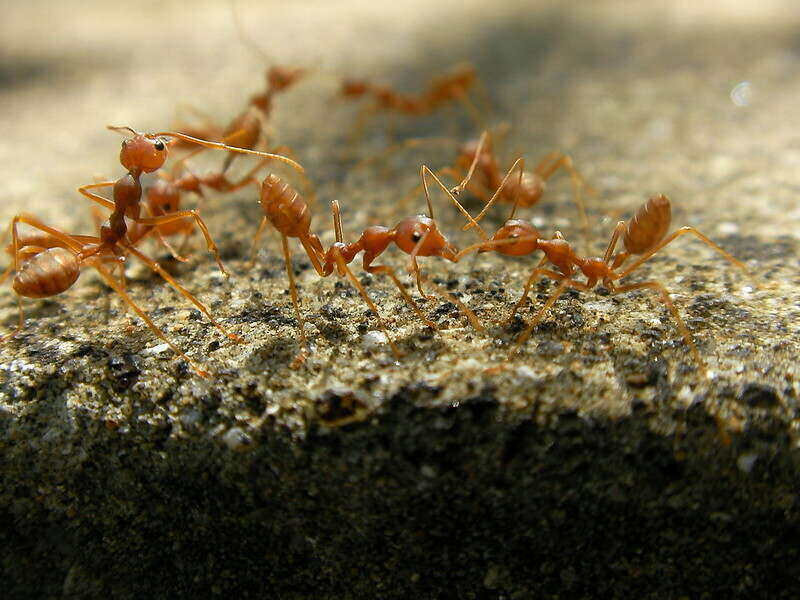
Also known as red imported fire ants (RIFA), these nasty, invasive pests have spread from Texas to Florida and as far north as Virginia. They can pose a danger to small pets or children, and if left unchecked, they can move into your home, so beware. In case of an allergic reaction, call 911 right away.

Since 2009, Virginia Beach has been included under the Federal Fire Ant Quarantine. This means that the responsibility to control any fire ants infestation is now with the citizens rather than with the Virginia Department of Agriculture and Consumer Services (VDACS).
“This is a horrid, obnoxious pest that we do not want in Virginia,” says Dr. Dini Miller, an entomologist and the Virginia Cooperative Extension specialist on urban pest management. You’ll see their telltale mounds around your lawn as it begins to warm up in spring. Miller adds that to an untrained eye, red imported fire ants and their mounds are difficult to distinguish from other ant species.
How to Get Rid of Fire Ants
Here are a few tips on how to get rid of fire ants:
- Use the two-step method: The first step in the two-step method is applying a bait treatment with a hand-held seed spreader to the entire yard during a dry spell. The second step is treating individual mounds.
If you make fire ant treatment a part of your Virginia Beach pest control routine, you’ll be able to curb spring infestations.
- Apply baits carefully around the mounds rather than on top of it, carefully following the label’s instructions.
- Avoid using DIY remedies (such as diesel fuel, gasoline, boiling water, grits, and others) since they will only make the mound split, spreading the ants farther in your yard.
- Call a pest control company: This is also a recommendation when dealing with fire ants, especially if you find any nest near electrical wiring (on which they like to chew, causing electrical fires).
- Watch out for your pets: RIFA can be commonly found in areas where pets feed, so dogs and cats must be supervised in areas you suspect there are ants. If a dog is tied in the yard, it must have enough lead to move 10 or more yards in any direction to escape any possible attack.
4. Fleas
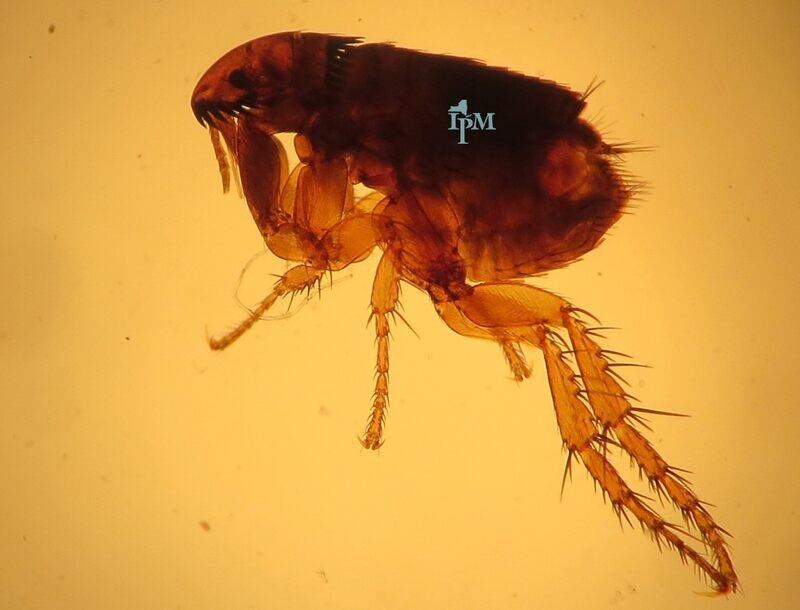
These tiny jumpers are hard to see but impossible to ignore if you have them in your yard. While yard infestations are rare, when they happen, they can ruin an entire summer. Fleas rarely spread diseases to humans, but their bites cause extremely itchy red welts. Not sure if you have an infestation? Check out our article “How to Know if Fleas Are in Your Yard“.
How to Get Rid of Fleas
- The first line of defense is spot-treating your pets in the warmer months. On an important note: Never use dog flea products on cats, as this can be fatal.
- If you notice fleas outdoors, you’ll need to treat the yard, doghouses, and under any decks or porches. There are various yard sprays designed for this.
- If you want to control the issue naturally, you can mulch with cedar and spray beneficial nematodes on your lawn.
- Clearing clutter and keeping a tidy lawn will also go a long way toward discouraging flea blooms, since these tiny soil creatures go to work beneath the grass, unseen.
5. Mosquitoes
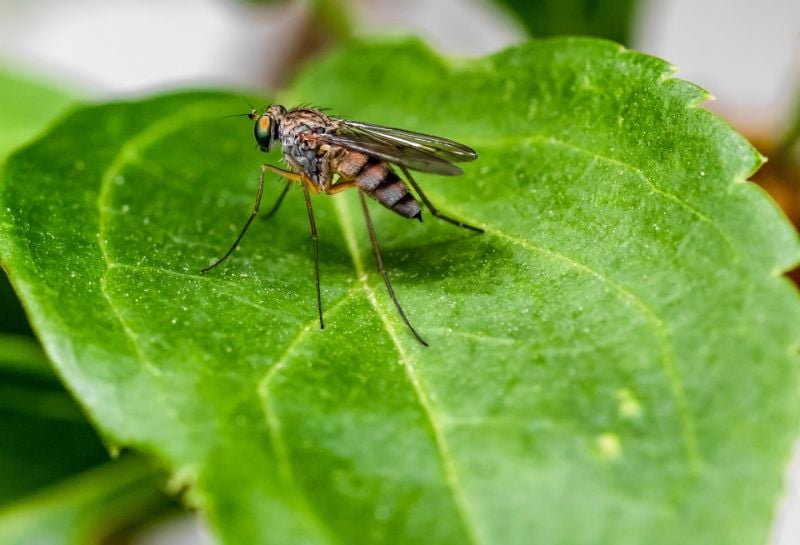
While the buzzing of a determined mosquito in your ear can be annoying, these yard pests are more than a mere inconvenience. Mosquitoes in our region are vectors for disease, most notably the West Nile virus, dengue, and encephalitis.
While wearing long sleeves and insect repellent can keep the bloodsuckers off your body, the ideal second step is to control their population by taking measures to prevent mosquitoes from multiplying in your yard.
How to Get Rid of Mosquitoes
- Ensure there’s no standing water on your property — even the water in backed-up roof gutters can harbor mosquito larvae. Ensuring mosquitoes have nowhere to breed is the most important step in mosquito control around your lawn.
- Replace water in birdbaths weekly, and place goldfish or gambusia fish in ponds or water features, since these fish eat mosquito larvae.
- You can also treat water reservoirs with “dunks” that contain Bacillus thuringiensis (Bt), a nontoxic bacteria that kills mosquito larvae.
- Another efficient measure is to apply insecticides to any areas with shade: trees, shrubs, and foundations.
- Remove any plant overgrowth or tall weeds in your yard: These are also used as resting places for mosquitoes during the day.
6. Ticks
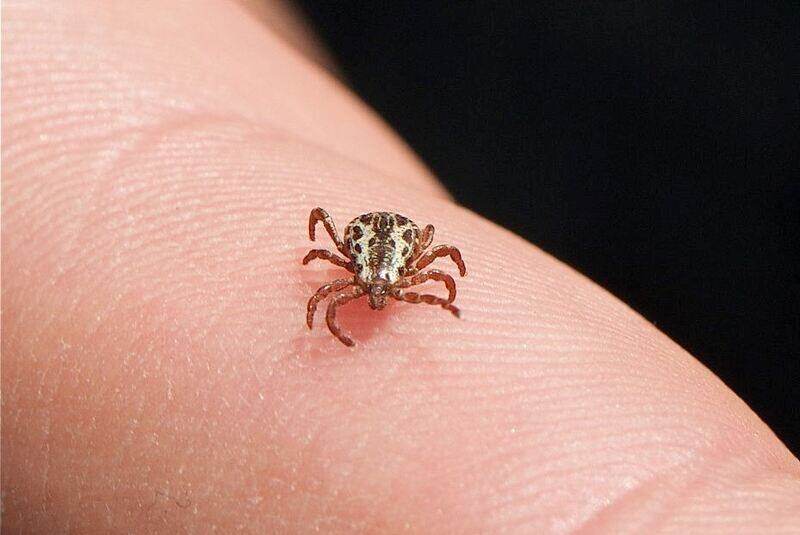
Most of the ticks in Virginia are creepy, but deer ticks carry some serious diseases, notably Lyme disease, Rocky Mountain spotted fever, and anaplasmosis. Most ticks hang out in wooded areas, but any yard frequented by wildlife, such as deer or raccoons, can end up with a tick population.
How to Get Rid of Ticks
- Keeping grass and landscape plants trimmed and tidy will help minimize tick habitat.
- There are anti-tick lawn treatments available, but they should only be used in extreme cases.
- Insecticides can be applied near the house, on the edges of the lawn, and around kennels, but make sure to follow the instructions on the label.
Extra tip: If one of these critters bites you, remove the tick carefully so that the head is intact, and preserve it in rubbing alcohol if it needs to be identified.
FAQ
Keeping a healthy lawn is the best way to prevent pests from invading it. Here’s a checklist to a pest-free lawn:
● Choose the best grass for your Virginia Beach lawn
● Prune and remove clutter regularly
● Control thatch levels, particularly in Bermuda, St. Augustinegrass, and Zoysiagrass. This helps prevent pests like grubs.
● Mow the lawn regularly (and follow recommendations on how to mow the right way) to maintain its overall health
Mosquitoes become active from April up until early October in Virginia.
As this is when lawn pests usually appear, spring in Virginia Beach is the best season to treat pests. Before applying any pesticide, make sure the damage in your lawn is indeed caused by bugs and not by other diseases and conditions (drought, stress, or fungi).
Final Thoughts
With such beautiful warm months in Virginia Beach, it would be a shame to miss even a minute of outdoor time. By following a few guidelines and taking precautions, you should be able to soak up the sunshine without interruption by the many yard pests that call this seaside paradise home.
If you are facing a pest problem, we have the best lawn care pros in Virginia Beach to help you enjoy your yard pest-free. Contact a pro and get a free quote so you can spend less time stressing about these pests and more time enjoying a beautiful, green lawn.
Disclaimer: This information is for educational purposes only. Contact a pest control professional for information and advice on the worst lawn pests that bug your yard in Virginia Beach.
Main image credit: Pxfuel




